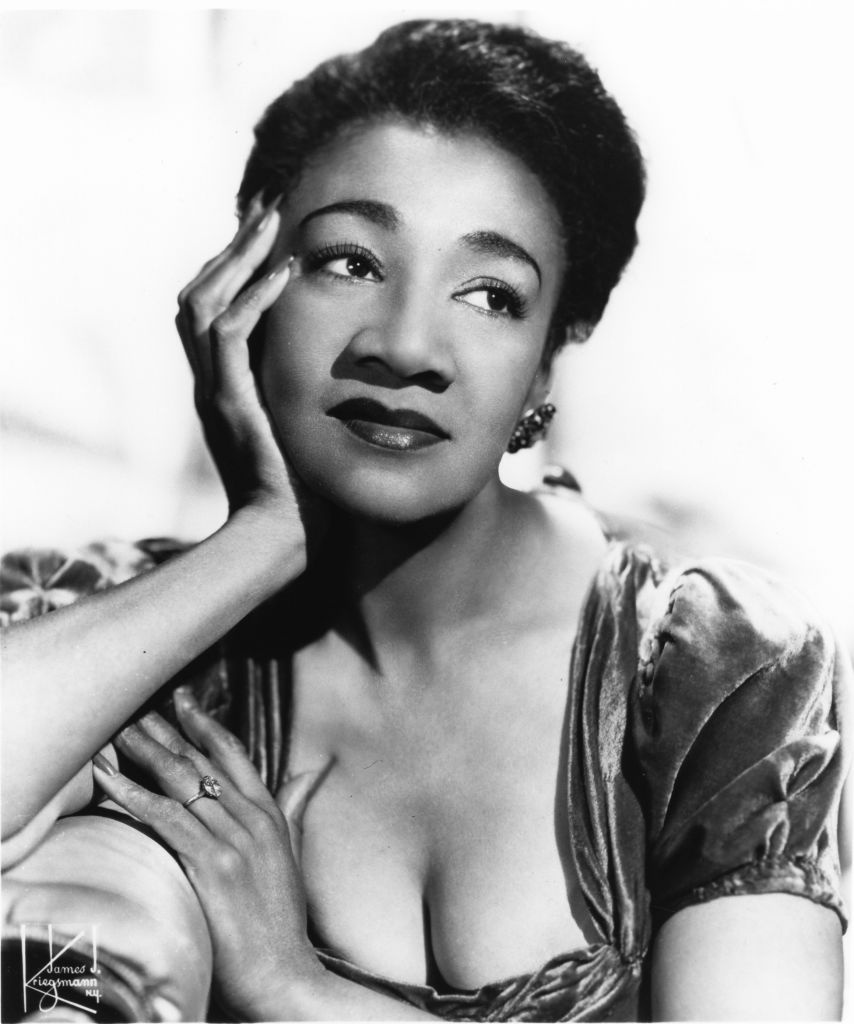
Source: Gilles Petard / Getty
The Icons is a four-part series through which we will explore the little-known stories of LGBTQ Black History icons.
When one thinks of Alberta Hunter, the word resiliency should come to mind. The highly accomplished jazz singer was born in Memphis on April 1, 1895. Her mother worked as a housekeeper at a local brothel and she never met her father, who according to Brittanica, abandoned the family shortly after Hunter was born. Her mother eventually remarried, but family life proved to be troubling for a young Hunter, whose childhood was plagued with poverty and abuse, according to the Memphis Music Hall of Fame.
It is widely reported that Hunter ran away to Chicago at the of 11. However, this age varies from one report to the next. Once in Chicago, a young Hunter dressed up to appear older, snuck into nightclubs, and asked for the opportunity to sing. Eventually, she landed a gig in 1911. She worked her way up from performing at Dago Frank’s, a Chicago brothel, to Hugh Hoskin’s saloon, the Elite Café, and the Panama Club, to eventually, the Dreamland where she performed alongside the greats such as Louis Armstrong, King Oliver, and Lil Hardin Armstrong.
Hunter would find great success and went on to tour Europe before returning to Chicago. Despite her fast-growing popularity, she decided to flee the city after growing weary of the violence that plagued the nightclub scene. Her breaking point was when her piano player was murdered during a performance. She made New York City her new home and shortly after, she married a man named Willard Townsend. The marriage was short-lived and rumors emerged that Hunter was a lesbian; however, she did not publicly disclose her sexual identity in order to preserve her growing career. Historians say she remained closeted while singing about tormented romances.
Hunter went on to record popular songs such as “He’s a Darned Good Man to Have Around,” “How Long, Sweet Daddy, How Long,” “Some Day Sweetheart,” and “Down Hearted Blues,” the latter becoming a hit for Bessie Smith later. Not one to limit herself, Hunter went on to pave her way in the world of theater. Not only did she replace Bessie Smith in the show, How Come?, she also starred in Showboat, which ran in London. Hunter would spend many years in Europe as she found that Europeans were more willing than their American counterparts to give Black talent a chance.
After the death of her mother, Hunter reinvented herself and changed careers. She ventured into the nursing profession, doing so for 20 years.
“I went as far as you could go. I played Broadway. I played the Royal Theatre in London. I played in Paris… and I figured I had gone to the top,” she said according to the Memphis Music Hall of Fame.
Hunter worked as a nurse until she was forced into retirement. Not being one to ever let circumstances slow her down, she returned to singing at age 81 and recorded four albums. She toured Europe, South America, and sang at the White House for President Jimmy Carter. After leading a very full life, Hunter died on October 17, 1984. She was 89 years old.









